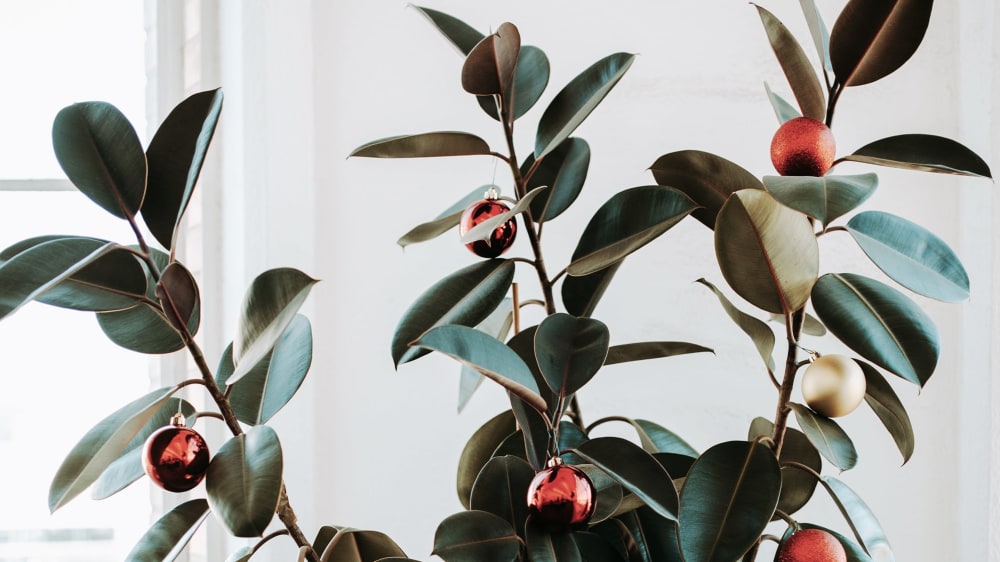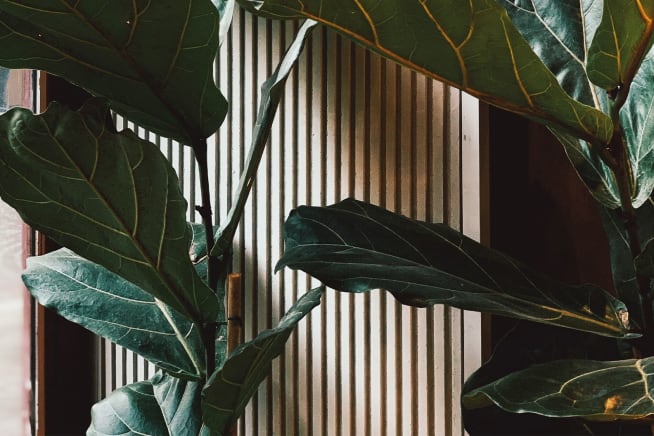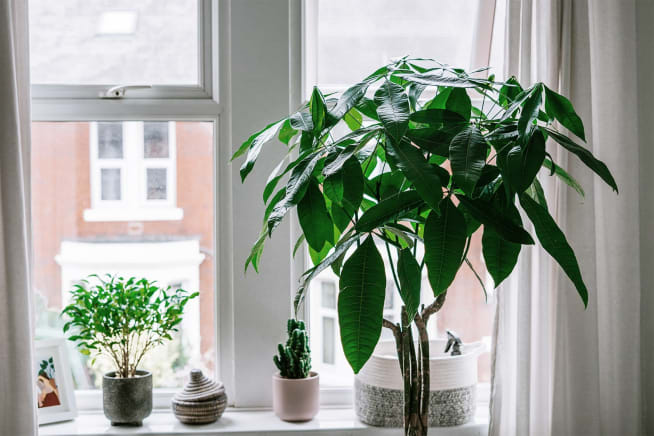How to care for houseplants in Winter
Your plants won’t need much from you in winter. Most of them will stop growing, so it’s time for you all to relax.

Winter is a time for your plants to rest. They’ll grow less, need less water and generally be very low maintenance. In brief, here’s how to look after your plants in winter.
- Water less often, only when the soil feels dry
- Move them closer to a light source
- Stop feeding – they don’t need it
- Keep them away from draughts (too cold)
- Keep them away from radiators too (too hot)
Let’s get into it in a little more detail.
Water them less
Because they’re not growing so much, plants are not very thirsty in winter. You’ll need to water far less frequently.
Stick with only watering when the top two inches of soil feel dry. They may not need watering for weeks.
Move them closer to a window
Shorter days mean fewer hours of sunlight. Help your plants maximise the day’s rays by moving them a bit closer to a window.
You won’t need to worry about winter sun scorching them.


Pause the feeding
Plants only need to be fed when they’re growing. While they’re dormant (not growing), you can stop feeding.
When spring arrives, give them a monthly dose of fertiliser again.
Keep them clear of radiators and draughts
Indoor plants dislike cold winter winds and hot radiators. They like a pretty consistent temperature.
That sounds a bit fussy, but all it means is you shouldn’t put them right next to radiators or draughty doors/windows.
Don’t stress about dropped leaves
Most plants are sleeping now, which means they’re conserving as much energy as possible. That means they may drop some leaves, because they don’t need them.
This is nothing to worry about and there’s nothing you need to do. Don’t be tempted to water more or feed them. It will do more harm than good.
Enjoy the rest
This is a time of year when you don’t need to worry much about your plants. They’re taking care of themselves. They may not grow at all. They may look a bit sad and droopy.
All this is fine. Your job is just to help them recharge, so they can burst into new life when warmer times return.